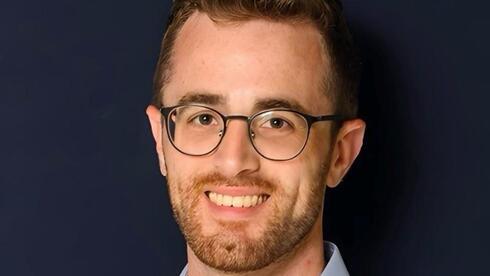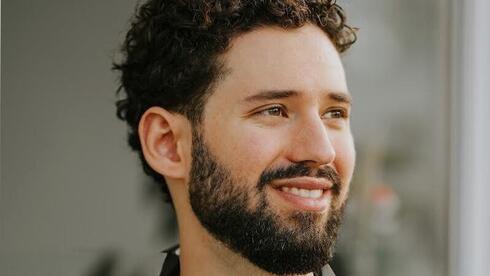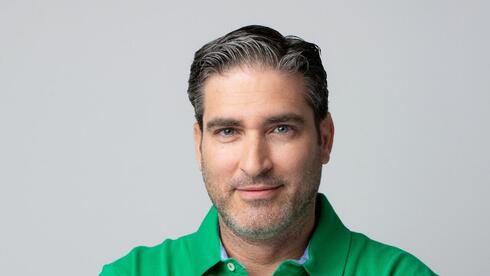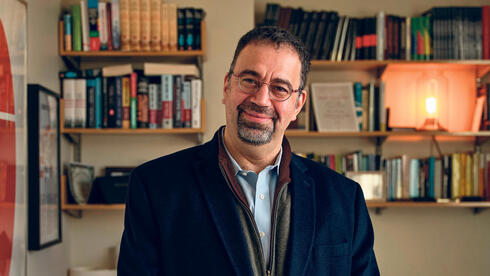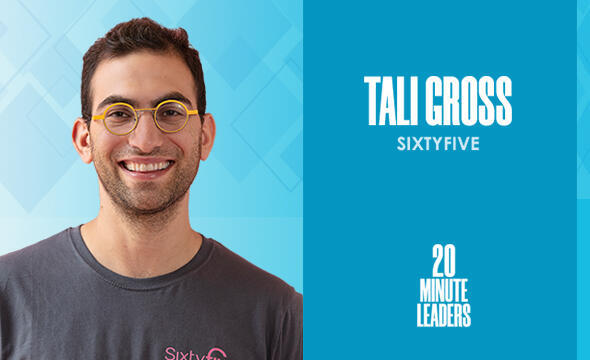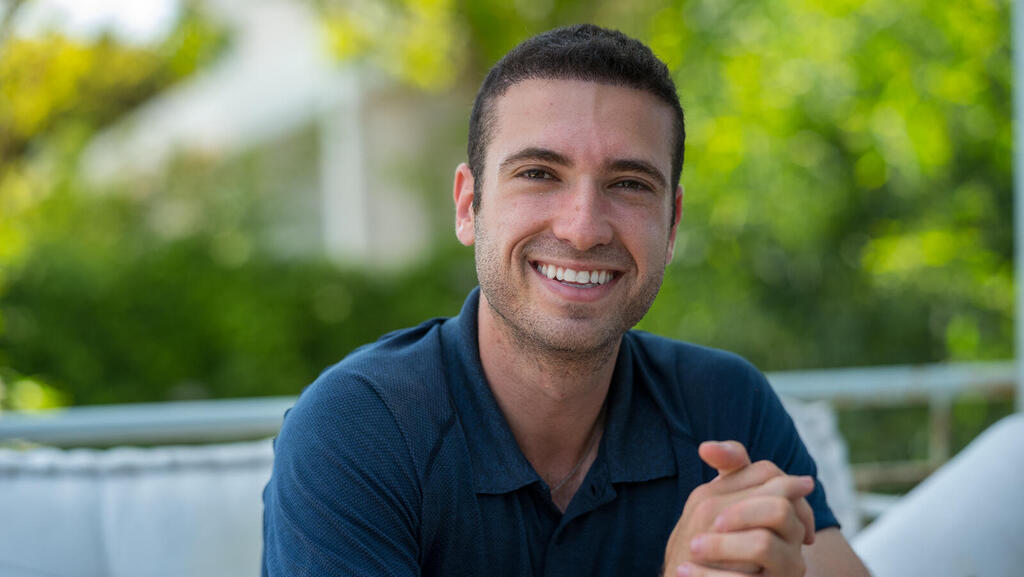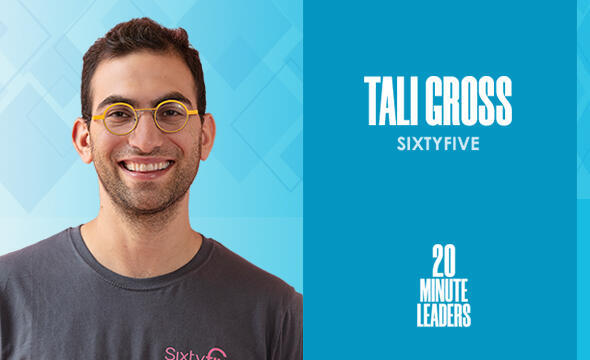
20-Minute Leaders
This young CEO solves the financial hardship of retirees with his Fintech product
With the rising cost of living, millions of American seniors find themselves in economic hardship. Tali Gross, the CEO and Co-founder of SixtyFive, aims to empower seniors to transform their home equity into an accessible income on demand
The connection of Gross, a fresh law graduate at the time, to the retirement industry was quite accidental, as the young CEO and co-founder shares with Michael Matias in an interview on the "20 Minute Leaders" podcast.
Watch the full episode of the "20 Minute Leaders" podcast with Tali Gross:
"It's actually an interesting story. I really didn't want and still don't want to be a lawyer. I never actually practice in any way. But one of the only good things above good friends from the university was that I practiced in kind of like a legal clinic, it was about seniors, trying to help them in their retirement years with the understanding that their asset is their home.
And you are sitting every week for several hours talking to seniors about their financial life; about the struggles that they are facing, mostly financially struggling, and you understand that a story that is coming over and over is the fact that lots of them have a house that they own, they want to continue to live in their home and they don't have enough money to fund their monthly expenses. There is kind of a constant gap between their income and expenses.
And down the road, it's almost seven years ago, I told myself, 'Listen, Tali, you are going to change it'. I didn't know then how and when we were going to make it happen but it was really clear to me that we needed to do something there".
Why did this issue catch you so concretely?
"It's a great question, and to be honest, I don't have the answer. Like, one of the things that I'm thinking a lot about, is that in some way, most entrepreneurs, I think, are trying to solve problems that they are facing in their ongoing lives; they are trying to fix their life, and I don't know why retirement is sitting on me. I will tell you that I'm super happy that I'm there because I think that, overall, there is a huge lack of innovation when we are thinking about seniors, about things that are not in the regular entrepreneur mindsets".
The founding journey of "SixtyFive" actually started from an idea of the two co-founders, Gross and his friend Eyal (Stern, the COO), to build something together.
"We took an office in Tel Aviv with nothing, really nothing above the fact that we are paying rent for an office and we are going to be there 20 hours a day. And we started there, trying to think what we can build together. Really quickly, Ron (Likvornik, the CTO and co-founder), my amazing partner joined us through this journey. We put on the table a few problems that we can solve and I told them, 'Listen, this problem, it's a huge problem. Home equity and retirement, it's a huge problem. It's going to be one of the most challenging journeys that we can do together, but we can really change life. Real life. We can change the life of people and let's make it happen'. And that's how we started.
From a funding perspective, officially, we started in May 2022. We raised kind of like a pre-seed, trying to bring money from kind of like add value investors like FinTech entrepreneurs, like Shai Wininger from Lemonade, Matan Bar from Melio, and Ron (Gura) from Empathy, People that are really coming with add value or people from the retirement industry and others. And a few months ago, we raised money from micro-VCs. Both of them are sitting in the Valley and one of them also is sitting here in Israel".
Phenomenal. So walk me through those early stages of really honing in on the problem and coming up with your home income as a solution.
"So we started with the fact that, in some way, everybody understands, not everybody at least, but we understand that there are lots of seniors, lots of American seniors to be more accurate, that is getting into their retirement years, they don't have enough liquid savings. The regular American savings account, 401 (K) or IRA, they don't have enough money there. And the fact that they don't have enough money, there is a rising cost of living- and this combination is, it's difficult. And on the other side, most of them live in a house that they own. Like, if we are looking at the Baby boomer generation, 80% of them live in a house that they own, so it's a very interesting problem.
The most known solution today is the reverse mortgage that started almost a century ago, In very short, it's not trying it all in some way to serve the needs of those seniors, they are trying to think, like, 'Let's sell money and don't talk with the client forever'. And we tried from scratch, to, 'Let's try to understand what those seniors need'- and then how we can build the financial product from scratch in a way that will serve the needs of those clients in the best way. And understanding if we will build the best product, we can win the market".
Got it. And then what happens?
"We started with really creating from scratch a financial product. It's a long process that includes a lot of legal work because we created here a unique legal structure. So it was long months and a huge amount of money to build a legal structure that we could operate under the States. And of course, from the distribution channel also to understand how we can approach those seniors and convince them that we are going to take their house in some way and they can trust us. And that was also a long journey to understand how we are going to distribute the product, and how we are going to talk with seniors.
We figured out very quickly that we were not going to do only paid media regular ads because it's not this kind of product, and we started to work with financial professionals: financial advisors, people from the mortgage industry, people who are trustable in some way and understand how seniors are thinking about products. And we started to collaborate with those guys that are helping us now to promote the product in front of their clients.
We launched the product by the end of November, and we are operating today only in Florida. We have now a few dozen clients that we are actually changing their lives- and we have a huge list, more than what we expected. We have around 500 clients who passed the full application process and share with us every piece of information that we ask for including kind of like sensitive information like their social security.
Because we are a young and fresh start startup, we have a limited capacity so we cannot onboard them. But it is amazing to understand how people are responding to the product that you thought about it in a small office in Tel Aviv and now you have people all over Florida that want your product. And in some way, more interesting is why people want your product. We had a few reasons why we think those seniors will be interested in the product- and one of the interesting things is that when you are actually in the market, people are coming to you with crazy ideas, like, how they can use your product in their life, and it's really inspiring".
I love it. And as you mentioned, it sounds a little bit different from the pain that you may experience (in your everyday life), so how do you get into the minds of these retirees?
"Great question. And I will say that it's not a silver bullet. It's not like you made something and it's all set up. It's a journey. And we started of course by talking with clients about their lives, about what they are looking for, what's the reason that they are not sleeping at night, etc. And then you can figure out how you can help them. There is a great book, like, "Ask your mom" or something like that, how to interview clients. So that was interesting, talking also to kind of like financial professionals, family members, to understand how we can help their family, their clients, how we can support them in their financial life.
And then we are launching the product, we are showing some demos and we can see responses how they are actually responding to the product. So it's a long process and we still have lots to learn about how to make it better. We are always working on educational materials and changing our language and adjusting things in the product to really make it in the best way that we can make it happen".
Let's talk a little bit about building trust in this product. What have you found helpful in building this trust with seniors as a young startup?
"I will take your question to the next stage, and I will tell you that the biggest challenge that SixtyFive is facing is the fact that we need to build a very trustworthy company. Because we are talking with seniors about their houses, about retirement, about income. Like, the most super heavy topics in the world that that's the things that we are discussing and we want to make it into a super simple digital process- In some way, the simplicity of the process is one of the challenging parts, because when you are thinking in the traditional world, a process should take you three months. You are going to pay $5,000; you are going to do a ton of paperwork. And we are offering them a process that will take them only 20 minutes. So really building a trust here, that's the biggest part here.
And to continue my previous answer, it's a journey. It's not like you don't build trust, it's a process of building. We are starting with the fact that, for example, we are not doing direct-to-consumer, we are not relying on direct-to-consumer, and we are working with trustable entities in some way in the senior community. We are working with financial advisors who are offering our product to their clients, and they have known their clients for a decade or two or three or more than that. So one of the main reasons we are working with partners, kind of like a 'B2B2C' distribution way, is the fact that that's one of the ways that we are bridging this gap of trust in some way. And so that's the biggest thing that we are doing today.
One of the interesting and unique things about seniors is that they love to read. Like me, you, and overall the young generation, if it's more than two sentences, I personally lose it. And when we are coming to seniors, we understand that we need to build, we need to offer them materials to read. And in our application process, we are sending them, we are giving them access to materials that explain to them about the product: about how the product can serve them, about how legally this product is structured".
Tell me a little bit about the vision. Growing from here over the next couple of years, what are you looking for in SixtyFive? What's going to happen?
"So SixtyFive is a retirement income company. And one of the things that we understand, is that when you are getting to retirement you have lots of assets. You have liquid assets like your 401K and social security and IRA and whatever you have, and you have more locked-on. It's a huge market. But overall, you are getting in retirement and it's hard to get income in retirement even if you have the money. And our big vision, and we will make it happen in a few years from now, is to take all of your savings and connect it to the SixtyFive card, like a one-stop-shop in some way for your income in retirement years.
We are starting with home equity because home equity is the overall biggest single asset and the most locked one. In the home equity, it's like that's the biggest pain point, but it's a pain point in a broader way, and that's what we want to change. My vision is that I will take you two years from now to any Walmart shop in the States and every second American senior will buy his groceries with a SixtyFive card. Because it's a better way to retire".
And I want to finish on the 'why'. has your why evolved at all from when you first started out the company? Have you discovered some things that changed your why?
"So the 'why' is the same, but in some way, you understand the 'why' better every day. If you had asked me a year ago, 'What are you going to do?', so 'I'm going to change the lives of people'- but you are saying it and you are not feeling it. Now, with every step that we are doing, every client that we are helping, you can really feel real understanding that we are really changing the lives of people. And it's a process to understand how much impact you can make. And that's the 'why'. The why is just getting deeper in some way. It doesn't change.
Michael Matias, Forbes 30 Under 30, is a Venture Fellow at Innovation Endeavors as well as investment Venture Partner at Secret Chord and J-Ventures. He studies Artificial Intelligence and Human-Computer Interaction at Stanford University, and was an engineer at Hippo Insurance. Matias previously served as an officer in the 8200 unit. 20MinuteLeaders is a tech entrepreneurship interview series featuring one-on-one interviews with fascinating founders, innovators and thought leaders sharing their journeys and experiences.
Contributing editors: Michael Matias, Betty Elbert



